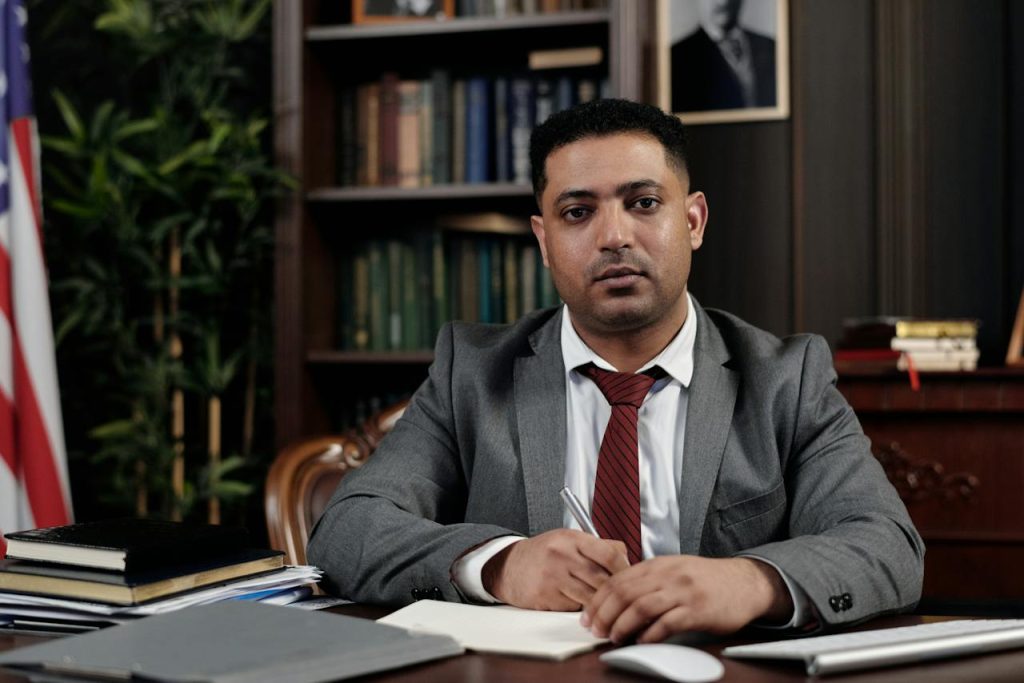From 2020 to 2023, there was a decline in the percentage of Americans over 55 with wills, dropping from 48% to 46%. However, beginning your estate planning journey is an integral step toward protecting the financial well-being of loved ones and ensuring your legacy endures.
In this comprehensive guide, we explore the complex world of estate and probate processes. Beyond the conventional understanding of writing a will, we explore the power of trusts, probate puzzles, and executor roles as we navigate this intricate landscape together. We will examine tax considerations as well as regular reviews to adapt to life changes. You will gain insights into crafting a robust estate plan while mitigating tax implications and providing peace of mind to both you and your heirs.
The Foundation: Understanding Estate Planning
Understanding the complexity of estate planning makes hiring an experienced attorney essential. Estate planning goes far beyond simply writing out a will; rather, it involves creating an integrated strategy to protect assets against incapacity or death by considering various aspects of a person’s estate. Crafting an effective will is at the center of estate planning, but this process also extends to trusts, powers of attorney, and healthcare directives, each playing an essential role.
The Power of Trusts in Estate Planning
Trusts are powerful tools in estate planning that give greater control and flexibility over asset distribution. Revocable living trusts allow you to manage assets during your lifetime before seamlessly passing them over to beneficiaries upon your passing, thus avoiding probate proceedings. Irrevocable trusts provide potential tax benefits while safeguarding assets from creditors. Testamentary trusts streamline probate, albeit not entirely avoiding it. For families with members with disabilities, the special needs trust facilitates asset transfer without affecting government benefits.
Understanding these structures and tailoring them specifically to meet your estate planning needs is integral for effective estate management. However, this can be quite confusing, so engaging the services of a local estate planning attorney to navigate legal complexities and document your wishes accurately is vital.
For instance, if you reside in Lancaster, South Carolina, research the market for the best attorneys specializing in this field and cross-check the list to find one that best suits your situation. Pick one name off the list, let’s say, Lancaster living trust attorney Barron B. Mack Jr., and check their work history. A lawyer with extensive experience and personalized legal guidance can ensure the smooth implementation of your estate plan.
The Probate Puzzle: Unraveling the Process
Deciphering the probate process is crucial when dealing with the aftermath of someone’s death. Probate involves legally dispersing assets, settling debts, and transferring any remaining property onto beneficiaries or heirs. While its systematic approach makes probate less time-consuming and expensive than before, public scrutiny often makes this a lengthy and expensive process. Assets held in living trusts tend to bypass probate altogether for faster transfers to their intended recipients.
For assets within probate’s purview, the court takes charge, validating the will, appointing an executor, and settling debts before distributing the remaining assets. Knowledge of the probate process provides you with an advantage in estate planning decisions. However, it’s best to make an effort to educate yourself more on this aspect, depending on where you live.
For instance, if you live in California, understanding probate as a resident of California becomes even more essential due to specific state laws and potential complexities involved with filing for it within certain time frames. But, what happens if you don’t file probate in California? Well, your estate could be considered abandoned by the court and all assets frozen and unavailable for beneficiaries to access them. To retrieve these assets legally would require lengthy and complex processes, underscoring the importance of hiring a probate lawyer with experience.
The Executor’s Role in Probate
In the probate process, the executor, named in the will, holds a crucial position. This person is entrusted with faithfully executing the deceased’s wishes as outlined in the will.
Their responsibilities range from filing necessary court paperwork to managing the deceased’s assets and debts, shouldering a significant burden. It’s pivotal to select a trustworthy and capable executor for a smooth probate process. Open communication with your chosen executor ensures they grasp your wishes and are prepared for the responsibilities that accompany the role.
Navigating Tax Considerations in Estate Planning

Taxes are an inevitable aspect of estate planning, and understanding their implications empowers strategic decision-making to ease the financial burden on your heirs. While the federal government imposes an estate tax on large estates, most individuals won’t be affected due to a high exemption threshold.
However, being mindful of estate taxes, applicable at lower thresholds, is crucial. Additionally, consider the capital gains of transferring specific assets. Collaborating with a financial advisor and an estate planning attorney provides guidance to navigate these complexities and implement tax-efficient strategies.
Regular Reviews and Updates: A Continuous Process
Keeping your estate plan up-to-date is not a one-time task; it’s a continual process. As life unfolds, events like marriage, the arrival of children, or significant financial shifts should trigger a revision of your plan. Confirm that your documents accurately capture your beneficiaries, assets, and wishes.
Regular updates also consider shifts in laws and regulations, guaranteeing your plan’s legal validity and alignment with your goals. Being proactive allows you to adjust your estate plan to changing circumstances, ensuring security for your loved ones.
In Closing
Estate and probate processes are fundamental elements of an effective financial plan. Taking the time to understand all aspects of estate planning and probate procedures, using trusts correctly, and navigating probate proceedings smoothly while taking tax considerations into account, will enable you to make informed decisions for the benefit of loved ones. Estate planning requires constant vigilance and adaptation for maximum legacy preservation. Engage with professionals, remain informed, and take necessary steps towards creating a secure financial future for yourself and those you care for.
































































